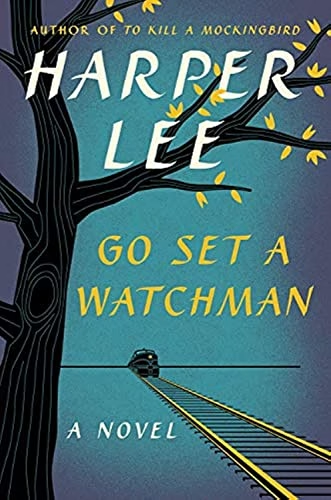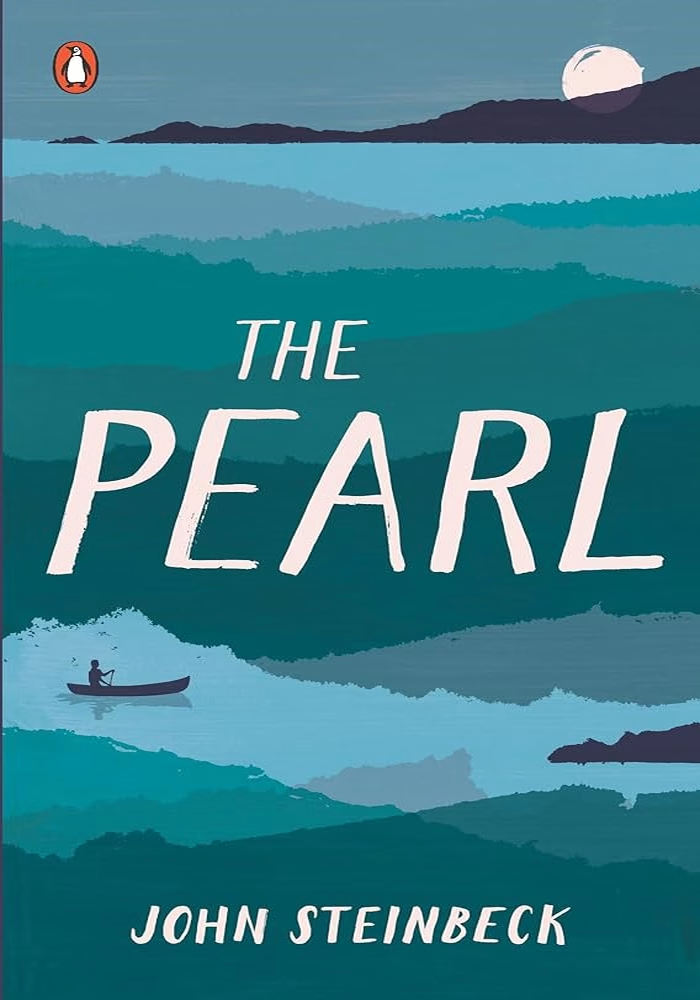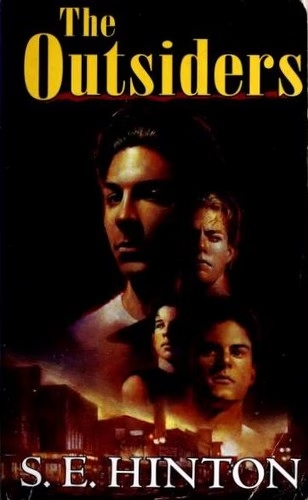Plot Summary
Homecoming and an Uneasy Peace
Twenty-six-year-old Jean Louise “Scout” Finch travels by train from her home in New York City to Maycomb, Alabama, for her fifth annual two-week visit. She is met at the station not by her father, Atticus, but by her lifelong friend and hopeful suitor, Henry “Hank” Clinton. Atticus, now seventy-two, is suffering from debilitating rheumatoid arthritis that makes driving difficult.
Upon arriving home, Jean Louise is greeted by the familiar comforts and tensions of her Southern life. She embraces her beloved father, whose physical frailty is a stark reminder of his age. She also endures the critical presence of her Aunt Alexandra, who has moved in to care for Atticus. Alexandra immediately disapproves of Jean Louise’s slacks, her independent city life, and her “Yankee” manners, resuming a lifelong battle of wills. The conversation turns to local news and politics, with Atticus expressing his disapproval of the Supreme Court’s recent desegregation rulings.
The initial days are a mix of nostalgia and romance. Hank, who rose from poverty to become Atticus’s junior law partner, is eager to marry Jean Louise. She is fond of him and considers him her “own kind,” but she resists his proposals, cherishing her independence and fearing the constraints of marriage in Maycomb. Their relationship is affectionate but fraught with her indecision. Aunt Alexandra strongly objects to the match, viewing Hank’s family as “rednecked white trash” and therefore unsuitable for a Finch.
Memories of an Idyllic Past
Jean Louise’s visit triggers a series of vivid, extended flashbacks to her childhood, painting a portrait of a different time. These memories resurrect her deceased older brother, Jem, and their imaginative summer companion, Dill.
- The Revival: In one memory, the children, fascinated by a local Baptist revival, decide to stage their own. Jem preaches a rambling sermon, Dill serves as the enthusiastic Amen Corner, and Jean Louise is the congregation. The game culminates in a mock baptism in Miss Rachel’s fishpool, with Jean Louise as the subject and Dill playing the Holy Ghost under a bedsheet. The chaotic ceremony ends when they are discovered by their father, who has brought the real preacher home for dinner, much to Jean Louise’s stark-naked mortification.
-
The First Dance: A poignant flashback details Jean Louise’s first school dance at fourteen. Anxious about her figure, she secretly buys a pair of “falsies.” Coached in dancing by her eccentric Uncle Jack, she attends the dance with Hank. The evening is a modest success until her falsies slip out of place, causing her immense humiliation. Hank comforts her, rips the offending items from her dress, and throws them into the schoolyard. The next day, the principal, Mr. Tuffett, discovers them hanging from a large billboard and, in a school assembly, denounces the “obscene act of defilement.” To protect Jean Louise, Hank consults Atticus, who subtly suggests a strategy of “safety in numbers.” Following this advice, every girl in the upper school submits a signed confession stating, “They look like mine,” overwhelming the principal and resolving the crisis with communal humor and loyalty.
These flashbacks serve to cement Jean Louise’s image of her father as a wise, just, and benevolent figure—a moral compass and the source of all her understanding of right and wrong.
A Shattering Discovery
The central crisis of the story begins when Jean Louise discovers a pamphlet titled The Black Plague on Atticus’s reading table. The cover depicts a grotesque caricature of a Black man, and its contents are filled with racist pseudoscience arguing for the inherent inferiority of the Negro race. When she confronts her aunt, Alexandra calmly informs her that Atticus brought it home from a meeting of the Maycomb County Citizens’ Council, a white supremacist organization, and that both he and Hank are active members.
In disbelief, Jean Louise walks to the deserted town square on a Sunday afternoon. She slips into the courthouse and climbs to the “Colored” balcony, the same place from which she and Jem watched Atticus defend Tom Robinson years ago. Below, she sees a meeting of the Citizens’ Council in progress. Her horror is confirmed as she watches her father and Henry sitting at the main table, listening approvingly to a vitriolic, hate-filled speech by a man named Grady O’Hanlon. The speaker spews racist, anti-Semitic, and anti-government venom, and the men of Maycomb—men she has known her entire life as decent and respectable—are part of it. The sight makes her physically ill. The man she worshipped, her “tin god,” is participating in something she finds morally repugnant.
The World Collapses
The discovery destroys Jean Louise’s entire moral universe. The foundation of her identity—her unwavering faith in her father’s integrity—is shattered. This disillusionment triggers a series of painful confrontations as she recoils from everyone she loves.
- The Visit to Calpurnia: Seeking solace, Jean Louise drives to the home of Calpurnia, the Black woman who raised her. She arrives to find Calpurnia and her family grieving. Calpurnia’s grandson, Frank, has killed a white man in a drunk driving accident. Instead of the warmth and comfort she expects, Jean Louise is met with a cold, formal politeness. Calpurnia refers to her as “Miss Jean Louise” and speaks with a detached dignity, creating an unbridgeable chasm between them. When Jean Louise presses her, Calpurnia asks, “What are you all doing to us?” The conversation reveals the deep racial divide that Jean Louise, in her naivete, had never truly seen. She leaves heartbroken, realizing Calpurnia no longer sees her as her “baby,” but as just another white person.
-
The Break with Henry: Later, Jean Louise confronts Hank in the town drugstore. She tells him she can never marry him and unleashes her fury about the Citizens’ Council. Hank attempts to justify his actions as a pragmatic necessity for surviving and succeeding in Maycomb. He argues that a man must conform to his community’s demands to be of service to it and that, as a man from “trash,” he doesn’t have the social luxury of nonconformity that a Finch does. She scorns his reasoning, calling him a coward and a hypocrite. The argument spills onto the street, where she accuses him of being scared of Maycomb, ending their relationship in a blaze of anger and contempt.
-
The Confrontation with Atticus: The climax is a brutal ideological battle with Atticus in his law office. She accuses him of being a bigot, a coward, and a hypocrite who has betrayed every principle of justice he ever taught her. Atticus remains calm, defending his position with the logic of a seasoned lawyer. He argues that the South is not ready for integration, that the Negro population is “backward” and in its “childhood,” and that the NAACP and the federal government are forcing a change that will lead to chaos. He reveals himself to be a firm segregationist who believes he is working to preserve social order. Jean Louise is devastated, declaring that he has cheated her, denied Black people their basic humanity, and destroyed her love for him. She ends by screaming that she despises him and everything he stands for, vowing to leave Maycomb forever.
Uncle Jack’s Intervention
Packing her bags in a fury, Jean Louise is intercepted by her Uncle Jack. After she unleashes her rage on him, he shocks her by slapping her hard across the face, twice, to break her hysteria. He then gives her a drink and calmly begins to deconstruct her crisis.
He explains that her problem is not just with Atticus’s beliefs, but with her own lifelong idolization of him. She had, he says, “fastened her conscience to his” and confused him with God. She never saw him as a flawed human being. The shock of seeing him participate in the Citizens’ Council was the violent, painful, but necessary death of that idol. This process, he argues, is what allows her to become her own person, with her own independent conscience. He tells her she is a “bigot” in her own way—intolerantly devoted to her own opinion and unwilling to grant others the “elbow room” to hold theirs, however wrong she thinks they are. He reveals that her father’s greatest love is the law, and he will defend it against anyone, be it the Klan or the federal government.
A New Beginning
After her conversation with her uncle, Jean Louise goes to pick Atticus up from his office. The all-consuming rage has been replaced by a quiet, trembling understanding. She expects recrimination, but Atticus greets her with a smile, telling her he is proud of her for standing up for her beliefs, even against him.
She realizes she cannot destroy the man, nor can she fully join him. She sees him now not as a god or a demon, but as a complex, fallible human being—a man of his time and place, shaped by the history she is a part of. As she drives him home, she accepts him into the human race and, in doing so, accepts her own place as an independent adult. The novel closes as she slips into the driver’s seat, careful this time not to bump her head—a small act signifying a profound new maturity and a fragile, more realistic peace.
Characters
Jean Louise “Scout” Finch
The protagonist, now a 26-year-old woman living an independent life in New York. Jean Louise is intelligent, fiercely moralistic, and outspoken, retaining the core integrity of her childhood self, “Scout.” Her journey home forces her to confront the vast chasm between her idealized memory of her father and the complex, prejudiced man he has become. Her central conflict is internal: she must shatter the icon of her father to forge her own adult conscience and find a way to love a flawed human being. She represents the struggle of a new generation grappling with the deeply ingrained prejudices of the old.
Atticus Finch
Jean Louise’s father, now an aging, physically frail man of seventy-two. In a stark departure from the heroic figure of her youth, this Atticus is a staunch segregationist and a key member of Maycomb’s white Citizens’ Council. He is not portrayed as a simple villain; rather, he is a product of his time and place, a paternalistic conservative who genuinely believes that slowing integration is necessary to prevent social chaos. He defends his views with calm, legalistic reason, creating a devastating ideological conflict with his daughter. His character explores the unsettling idea that decency and deeply held prejudice can coexist within the same person.
Henry “Hank” Clinton
Jean Louise’s suitor and Atticus’s law partner. Having grown up poor, Hank is acutely aware of his social standing and is driven by a powerful need to maintain the respect of the Maycomb community. He is pragmatic, kind, and genuinely loves Jean Louise, but his pragmatism leads him to compromise his principles by joining the Citizens’ Council. He represents the powerful pressure to conform to societal norms, arguing that one must work within the system, even a flawed one, to be of any service to it.
Dr. John Hale “Uncle Jack” Finch
Atticus’s eccentric and learned younger brother. A retired doctor with a passion for Victorian literature, Uncle Jack serves as the story’s intellectual and emotional guide. He is the only one who can break through Jean Louise’s rage and grief to offer her a path toward understanding. Witty, unconventional, and deeply perceptive, he forces Jean Louise to see that her crisis is not just about racism, but about her own psychological dependence on an idealized father. He provides the crucial wisdom that allows for the novel’s final, difficult resolution.
Alexandra Finch Hancock
Atticus’s sister and the unwavering matriarch of the Finch family. Alexandra is the embodiment of traditional Southern propriety, deeply concerned with family heritage, social status, and appearances. She frequently clashes with the non-conformist Jean Louise, whom she views as a “Yankee.” While she can be rigid and judgmental, her decision to move in and care for Atticus reveals a deep-seated familial loyalty. She represents the unyielding social order of the Old South that Jean Louise is rebelling against.
Core Themes
The Pain of Disillusionment
This is the novel’s central theme. Jean Louise’s journey is a powerful exploration of what happens when a child’s hero falls. Her entire moral framework, built upon the unimpeachable integrity of her father, collapses when she discovers his racist views. The story details her violent emotional and physical reaction to this betrayal, showing that the loss of an idol is not just a disappointment but a profound crisis of identity, forcing her to rebuild her understanding of the world, her family, and herself from the ground up.
Individual Conscience vs. Community
Go Set a Watchman examines the profound tension between an individual’s personal moral code and the collective beliefs of their community. Jean Louise, shaped by her New York life, returns with a “color-blind” perspective that sees people as individuals. This clashes violently with Maycomb’s worldview, which is fundamentally organized around race. The novel argues, primarily through Uncle Jack, that a person cannot exist in a vacuum. True maturity requires understanding and engaging with one’s community, even its ugliest parts, rather than simply running away in disgust.
The Complex Nature of Racism
The novel presents a challenging and uncomfortable portrait of racism. It moves beyond the simple good-versus-evil binary and explores a more insidious form of prejudice: the paternalistic, “respectable” racism of educated men like Atticus Finch. He and his peers do not see themselves as hateful bigots; they see themselves as responsible guardians of a social order, arguing for segregation out of a belief that it prevents chaos and protects a “backward” people from responsibilities they are not ready for. This forces both Jean Louise and the reader to confront the idea that good people can hold and defend abhorrent beliefs.
Past vs. Present
The narrative is structured around the collision of past and present. Jean Louise’s idealized, nostalgic memories of her childhood—a time of innocence, moral clarity, and heroic fatherhood—are constantly juxtaposed with the harsh and morally ambiguous reality of the present. The conflict arises from her realization that her memory of the past was incomplete and that the present is the direct, complicated result of that past. She must learn to let go of her romanticized vision in order to live truthfully in the world as it is.





